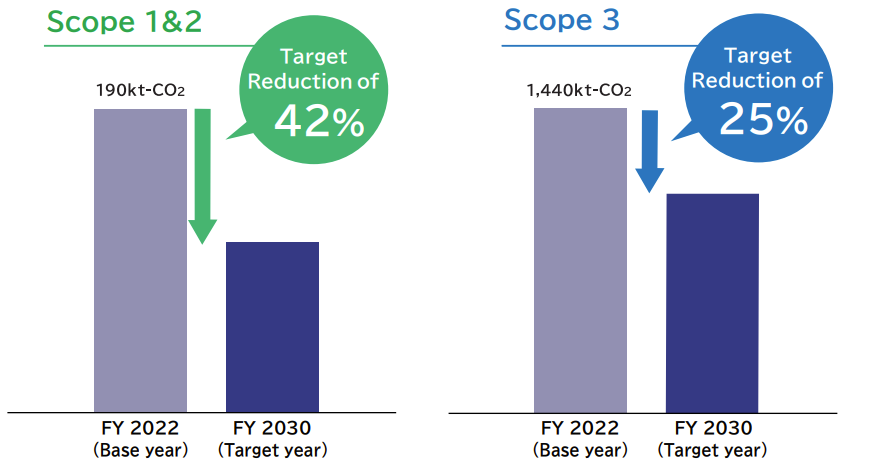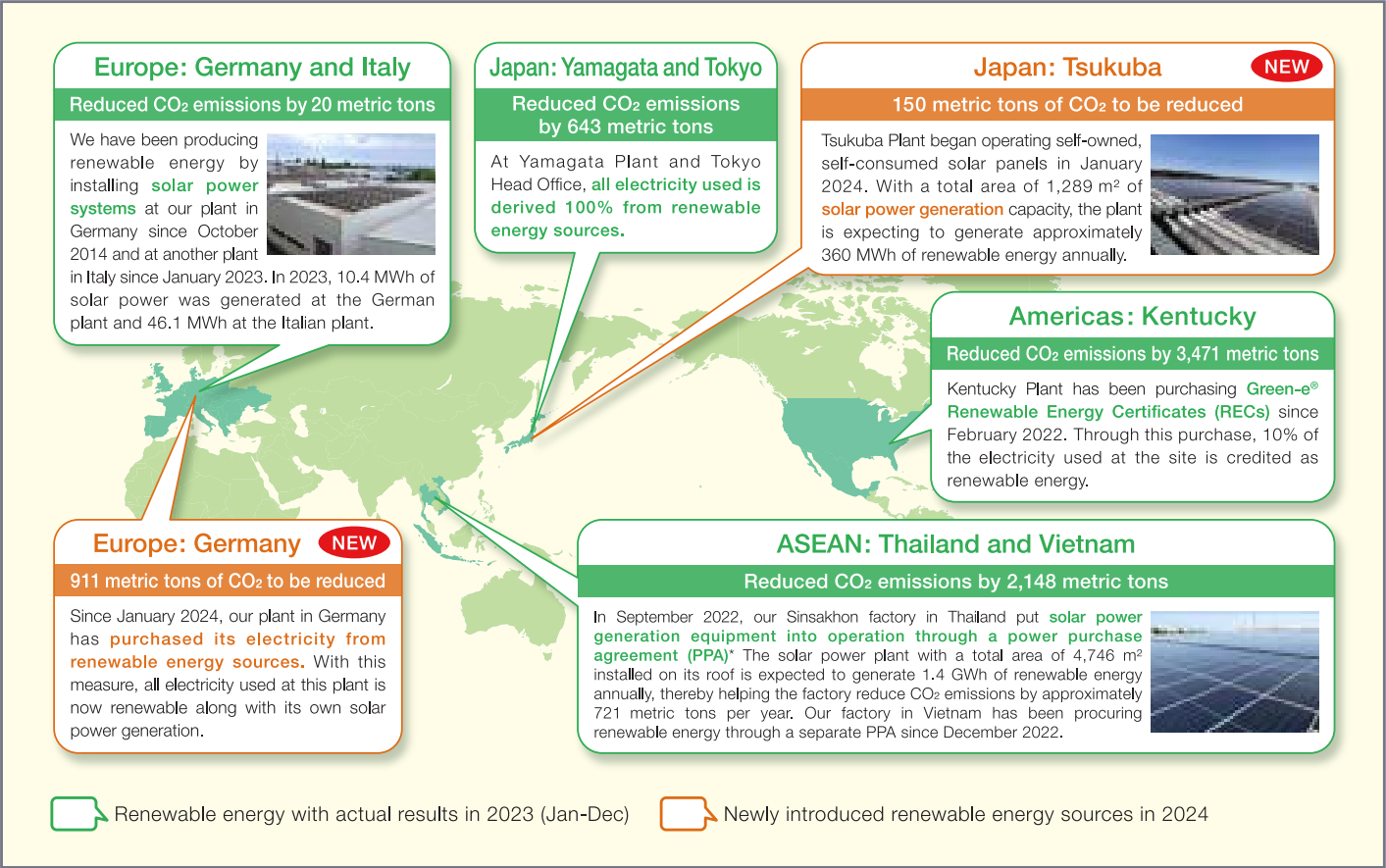Environmental Report
Latest release
New Targets Established for Reduction of GHG Emissions by 2030
In December 2023, Fuji Seal Group established new GHG emission reduction rate target for FY2030 through a resolution of the Board of Directors, in response to growing momentum toward the realization of a decarbonized society. To further accelerate our efforts, in March 2023, we submitted a commitment letter to SBTi , the accreditation body for SBT, which is a greenhouse gas emission reduction target in accordance with the Paris Agreement. We aim to obtain SBT accreditation within two years.
New Target: FY2030 GHG Emission Reduction
Scope 1&2 : Reduce emissions by 42% (From a FY2022 base year)
Scope 3 : Reduce emissions by 25% (From a FY2022 base year)

Figure 1: GHG emissions of the base year and the target year
*1 The Paris Agreement: The agreement to hold global temperature increase to well below 2°C above pre-industrial levels and pursue efforts to limit it to 1.5°C above pre-industrial levels
*2 Scope1&2: Emissions from sources that an organization owns or controls directly.
Direct emissions: Emissions from fuel combustion
Indirect emissions: Emissions from purchased electricity, steam and boiler
*3 Scope3: Indirect emissions other than scope1&2
Initiatives to Achieve New Targets
The Fuji Seal Group has been promoting energy-saving initiatives and introduced renewable energy sources in order to reduce GHG emissions (see Fig. 2 ). In January 2024, our German and Tsukuba factories began introducing renewable energy sources (see Fig. 2 ), and the entire Fuji Seal Group will continue to work together to further reduce GHG emissions and achieve our new target. Our new target also includes the reduction of Scope 3 emissions. In addition to reducing our own GHG emissions, we will work with our employees, customers and business partners to further reduce the GHG emissions of our products and services throughout the value chain.

Figure 2: Renewable Energy Installed in Fuji Seal Group
* Use of a PPA is a business model in which a PPA provider installs solar power generation equipment on the premises of a business operator (electricity consumer) free of charge and the latter purchases the generated electricity. The PPA-based business model benefits the business operator (electricity consumer) by helping avoid bearing the financial burdens of upfront, maintenance and management costs.